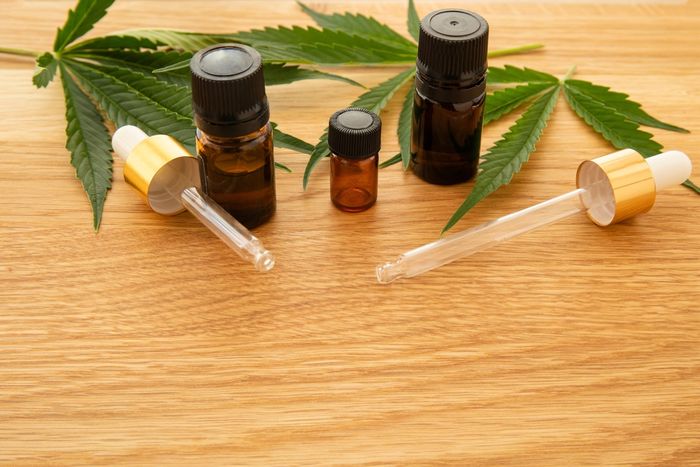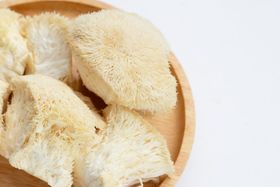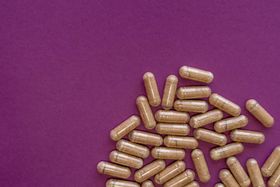Taking CBD for Diabetes: What You Need to Know
Updated April 14, 2023.

Diabetes is a condition that impairs the body's ability to produce or respond to insulin, which leads to excess glucose in the blood and abnormal metabolism of carbohydrates. The difference between type 1 and type 2 diabetes is that type 1 diabetes is genetic and is usually identified early on in life, whereas type 2 diabetes is brought on by poor dietary habits for a prolonged period.
There is no known cure for diabetes, but there are treatments to manage and control the symptoms so that diabetic patients can live mostly normal lives and even go into remission. That being said, is there any benefit to using CBD oil to assist other diabetes treatments? Read on to find out.
Benefits of CBD for Diabetes
As it turns out, there are various preventative and therapeutic benefits of using CBD for diabetes.
1. CBD May Lower Diabetes Risk
A small study carried out on non-obese diabetic rats found that they showed a significantly lower risk of developing diabetes when treated with CBD oil than those who weren't. Although this is a promising result, there is nowhere near enough evidence or research on this topic to draw definitive conclusions.
2. CBD May Have Analgesic Properties
One of the symptoms of diabetes is diabetic neuropathy—otherwise known as diabetic nerve pain—which affects your nerves and sends confused signals to your hands and feet that your brain can interpret as:
- Numbness or tingling in your extremeties
- Burning or aching pain
Studies have shown that CBD has pain-relieving (analgesic) properties that could lessen these diabetic symptoms.
3. CBD May Have Anti-inflammatory Properties
Another symptom of high blood sugar is build-up of inflammation, which increases your risk of:
- Heart disease
- Cancer
- Rheumatoid arthritis
Inflammation can even worsen the progression of diabetes. Interestingly, research has been conducted on the effect of CBD on inflammation caused specifically by elevated blood sugar levels and found that it appears to reduce this inflammation build-up significantly.
4. CBD Has Stress-Relieving Properties
The debilitating effects of stress on the mind and body are well-known as it stands, and research has even shown that it can potentially worsen the effects of diabetes, such as hyperglycemia (high blood sugar). As discussed in our article, CBD Oil and Functional Mushrooms for Anxiety and Stress Relief, CBD appears to have potent stress-relieving capabilities.
Safety of Using CBD for Diabetes
For the most part, the risk of side effects from taking CBD is relatively low, but could they be more lethal if used by diabetics? The side effects that are most often reported from CBD use include:
- Somnolence (drowsiness or fatigue)
- Reduced appetite
- Diarrhoea
- Dry mouth
Almost none of these side effects are related to symptoms of diabetes, and so it is highly unlikely that CBD can worsen the effect of diabetes.
However, there are two potential causes for concern: the risk of interactions between CBD and diabetes medication and the impurity of many CBD products.
Does CBD Interact With Diabetes Medication?
CBD has been observed to have drug-drug interactions with many pharmaceuticals due to the fact that it inhibits many of the same enzymes used to metabolise those prescription drugs. This runs the risk of reducing the effectiveness of the CBD and the drug as well as increasing the risk and severity of side effects.
As such, it is important to space out your doses of medication and CBD by at least four hours to reduce these risks.
Impurity of CBD Products
Currently, manufacturing of CBD products is not regulated in many parts of the world, which has resulted in fraudulent claims on the labels of many CBD products that actually contain vastly different concentrations of all present cannabinoids, including CBD and THC (the psychoactive cannabinoid found in cannabis). This is why it is essential to always purchase your CBD from reputable sources that can back their claims with 3rd-party lab results.
How to Use CBD for Diabetes
Although there are many different forms of CBD that all offer different advantages and disadvantages, dealing with chronic conditions like diabetes is going to require the best possible type of CBD product. As such, you should avoid topicals—as they have the lowest bioavailability—and inhaled products—as these can potentially damage your lungs and airways.
Instead make use of edibles that have the longest duration of effect, or tinctures applied sublingually as they have the best balance of bioavailability, speed of effect, and duration of effect.
Additionally, the beneficial effects of CBD may be increased when used in conjunction with other therapeutic components that offer similar benefits. The properties of functional mushrooms are increasing in popularity as more research is being conducted, and many of them appear to offer the same anti-inflammatory and blood sugar-modulating properties of CBD.
To learn more, read our posts about the benefits of the following mushrooms:







